 | | | “There is something infinitely healing in the repeated refrains of nature.”
— Rachel Carson | | | | | | The earth hums with green abundance, and the sky stretches wide with summer’s invitation to reflect. While campuses go on summer break, the work of justice does not rest. This month, we also honor Pride to celebrate the courage, queerness, and vibrant spectrum of identity. From forest floors to coral reefs, it is diversity that has always sustained life. Similarly, it must also sustain our movements for liberation, climate justice, and transformative education. 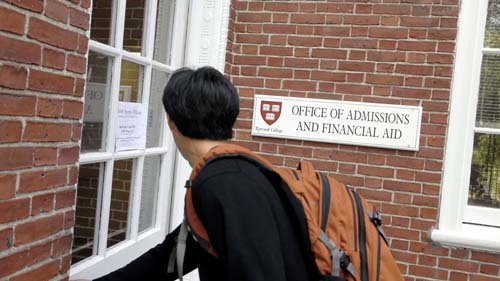 But this June, our celebration exists alongside deep concern. The institutions meant to nurture discovery and protect freedom are under siege. From Harvard’s revoked international enrollment to the termination of DEI-funded research, from ICE detaining students to the dismantling of campus programs, the Trump administration’s second-term assault on higher education is accelerating. Research funding is being choked. Public health programs are stripped to the bone. Academic freedom is often overshadowed by the weight of political backlash and bureaucratic retaliation. But this June, our celebration exists alongside deep concern. The institutions meant to nurture discovery and protect freedom are under siege. From Harvard’s revoked international enrollment to the termination of DEI-funded research, from ICE detaining students to the dismantling of campus programs, the Trump administration’s second-term assault on higher education is accelerating. Research funding is being choked. Public health programs are stripped to the bone. Academic freedom is often overshadowed by the weight of political backlash and bureaucratic retaliation. 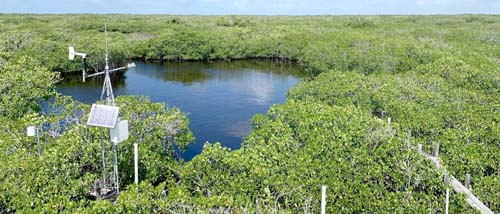 Amid these existential challenges, there is hope. Across the RCC Campus Network, we are witnessing powerful examples of what it means to lead. In this month’s Campus Dispatch, we spotlight stories of restoration and resilience that remind us that transformation is possible even in the face of political and ecological adversity. At the Yale School of the Environment, researchers have documented the surprising regenerative capacity of mangrove forests in the Florida Everglades, underscoring the importance of long-term investment in ecosystem restoration. In Charlotte, alumni from UNC Charlotte are transforming food scraps into fertile soil with Crown Town Compost, demonstrating that urban sustainability can begin right at home. Amid these existential challenges, there is hope. Across the RCC Campus Network, we are witnessing powerful examples of what it means to lead. In this month’s Campus Dispatch, we spotlight stories of restoration and resilience that remind us that transformation is possible even in the face of political and ecological adversity. At the Yale School of the Environment, researchers have documented the surprising regenerative capacity of mangrove forests in the Florida Everglades, underscoring the importance of long-term investment in ecosystem restoration. In Charlotte, alumni from UNC Charlotte are transforming food scraps into fertile soil with Crown Town Compost, demonstrating that urban sustainability can begin right at home. At Stony Brook University, students and scholars gathered for the Sea to Soil Symposium, exploring the intersection of marine ecosystems and regenerative agriculture to build a future rooted in reciprocity and resilience. And at San Diego State University, a library became the first in California to earn certification from the Sustainable Libraries Initiative. From Eden Hall’s student-built “Garden of Eden” in Pennsylvania to Clark University’s wildlife conservation dashboard, which tracks global species recovery, these campuses are creating meaningful change in an environment meant to suppress it. 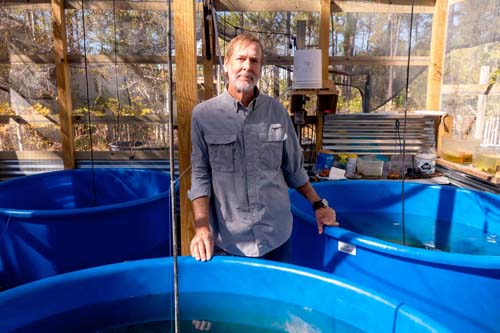 In our “RCC Fellows Speak Out” section, our writers offer powerful reflections that blend personal experience with environmental urgency. Enji Purevsukh revisits a brutal Mongolian winter in “If Only I Could Hibernate,” exploring survival, memory, and climate through film. Ludlow Morris, in “How to Create a Generation of Environmental Stewards,” captures the energy of student organizing under North Carolina’s summer sun. Jeremy Sabol shares the awe and danger of snorkeling above a coral reef in “Elevating and Learning from a World Down Under,” while Ava Betanco-Born recounts a transformative moment at the RCC’s Wood Pellet Forum in “Defying the Fool’s Errand.” Mary Mulualem reflects on grief and green space in “Bike Through a Forest Before It’s Too Late,” and Shraddha Sharma, in “The True Cost,” unpacks the environmental and human rights price behind modern food systems. Last, but not least, MacEva Wright shares the importance of identity and taking up space in a world that too often tells people to shrink in, “Carving Space in Uncharted Waters.” Together, these pieces remind us that the climate movement is deeply human and that storytelling remains one of our most powerful tools for change. In our “RCC Fellows Speak Out” section, our writers offer powerful reflections that blend personal experience with environmental urgency. Enji Purevsukh revisits a brutal Mongolian winter in “If Only I Could Hibernate,” exploring survival, memory, and climate through film. Ludlow Morris, in “How to Create a Generation of Environmental Stewards,” captures the energy of student organizing under North Carolina’s summer sun. Jeremy Sabol shares the awe and danger of snorkeling above a coral reef in “Elevating and Learning from a World Down Under,” while Ava Betanco-Born recounts a transformative moment at the RCC’s Wood Pellet Forum in “Defying the Fool’s Errand.” Mary Mulualem reflects on grief and green space in “Bike Through a Forest Before It’s Too Late,” and Shraddha Sharma, in “The True Cost,” unpacks the environmental and human rights price behind modern food systems. Last, but not least, MacEva Wright shares the importance of identity and taking up space in a world that too often tells people to shrink in, “Carving Space in Uncharted Waters.” Together, these pieces remind us that the climate movement is deeply human and that storytelling remains one of our most powerful tools for change. In our “RCC Campus Teaching Spotlight”, we celebrate the return of environmental policy expert Janet McCabe to Indiana University. With decades of experience in law, public service, and climate leadership, McCabe’s yearlong appointment brings invaluable insight to students and researchers at IU’s Environmental Resilience Institute. Our “Roots of Resistance” section honors Robin Wall Kimmerer—botanist, professor, and member of the Citizen Potawatomi Nation—whose work bridges scientific knowledge and Indigenous wisdom. Through her writing and teaching, Kimmerer invites us to listen to the Earth not as a resource, but as a relative. Her life’s work reminds us that restoring the planet begins with restoring our relationship to it. 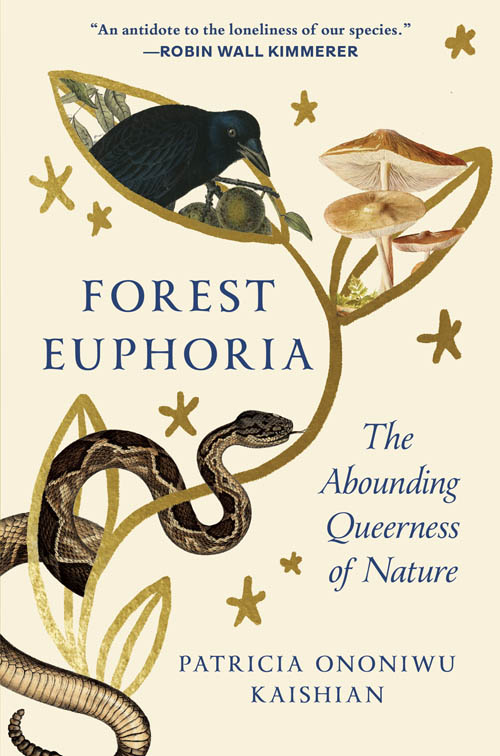 Lastly, the “Books” section turns to Forest Euphoria by Patricia Ononiwu Kaishian—a luminous new book that braids queerness, ecology, and connection into a stunning portrait of life beyond binaries. In Kaishian’s world, and ours, nature accepts diversity and depends on it. Lastly, the “Books” section turns to Forest Euphoria by Patricia Ononiwu Kaishian—a luminous new book that braids queerness, ecology, and connection into a stunning portrait of life beyond binaries. In Kaishian’s world, and ours, nature accepts diversity and depends on it.
As we close out a turbulent academic year marked by funding cuts, censorship, and political interference, let us remember that campuses remain vital for resistance and renewal. In classrooms, gardens, labs, and community forums, students and faculty continue to envision and construct a more just and sustainable future.
Stay informed. Stay engaged. And join us in amplifying these powerful stories from campuses nationwide. | | | | | | 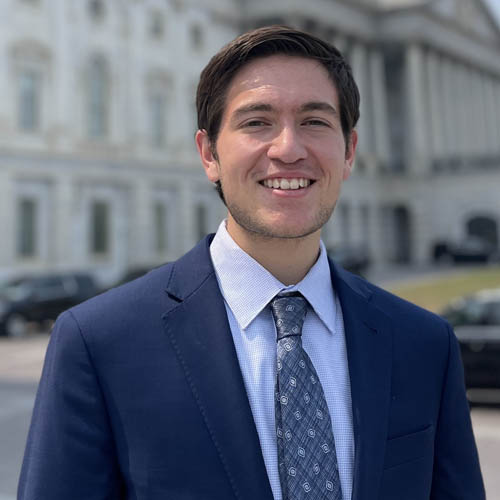 Diego Tovar — Director of Campus and Civic Engagement Diego Tovar — Director of Campus and Civic Engagement
Diego Tovar, Director of Campus and Civic Engagement, holds his master’s in Global Environmental Policy from American University and an undergraduate degree as a Udall Scholar in Ecosystem Science and Sustainability with a minor in Political Communication from Colorado State University. Diego has worked for the White House Council on Environmental Quality, the Environmental Protection Agency, the U.S. House of Representatives, and the Navajo Nation Washington Office focusing on climate justice and climate adaptation. | | | | | | Federal Funding Cuts Devastate Academic Public Health Programs Federal funding disruptions in 2025 have destabilized the foundation of academic public health across the United States, resulting in thousands of job losses, halted critical research programs, and billions in projected economic losses, according to a new report released by the Assoc. of Schools and Programs of Public Health. "Broken Lifelines: The Economic Consequences of Defunding Academic Public Health," provides a detailed analysis of how grant freezes, budget reductions, and agency restructurings have devastated higher education institutions nationwide. | | | | | | | | CSU-led Regional Food Business Center Awards $2 Million in Grant Funding A Colorado State University-led regional food business center funded by the U.S. Department of Agriculture has selected 116 small and medium-size farm and food business projects in Colorado, the Mountain West and the Pacific Northwest to fund with nearly $2 million in grants. The projects are being funded through what’s known as the Business Builder Grant Program, which is supported by the Northwest and Rocky Mountain USDA Regional Food Business Center. | | | | | | | | NC State Awarded Grant for Smart Building Modernization NC State University has been awarded up to $403,000 through the Energy Efficiency and Conservation Block Grant, administered by the North Carolina Department of Environmental Quality’s State Energy Office. Funded by the U.S. Department of Energy under the Infrastructure Investment and Jobs Act, an initial allocation of $249,662 has been approved, with the remaining funds to be disbursed as they become available. | | | | | | | | ‘Behind the Blue’: How UK is Modernizing Parking, Shuttles, and Sustainable Transit As the University of Kentucky continues to evolve — whether through expanding student housing, major medical center construction or increased sustainability initiatives — so too must the systems that help people navigate it all. With summer offering a brief window for more intensive work, University of Kentucky Transportation Services is executing projects ranging from garage expansions and surface lot renovations to shuttle route adjustments. | | | | | | | | Harvard Spars With Trump Administration Over Order Protecting Its International Enrollment The Ivy League institution argued that the federal government may seek to circumvent a pending preliminary injunction through “creative relabeling.” In late May, the U.S. Department of Homeland Security revoked Harvard’s ability to enroll international students by terminating its Student and Exchange Visitor Program certification. The agency alleged that the university had permitted a “toxic campus climate” to flourish by accommodating “anti-American, pro-terrorist agitators.” | | | | | | | | Tracking the Trump Administration’s Moves to Cap Indirect Research Funding Since President Donald Trump began his second term, at least four federal agencies have moved to cut funding for research overhead at colleges. So far, the National Institutes of Health, the U.S. Department of Energy, the National Science Foundation and the U.S. Department of Defense have all sought to limit reimbursement for colleges’ indirect research costs to 15%. | | | | | | | | Federal Judge Strikes Down NIH Directives Against DEI Research The American Civil Liberties Union called the ruling “a major victory for public health.” Federal officials are exploring their legal options, including an appeal. This year, NIH notified grant recipients that DEI-related research no longer carried out its priorities. A plaintiff whose research focuses on sexual violence in minority communities had six grants terminated, the ACLU lawsuit alleged. Another cut grant had funded a study seeking to develop interventions to reduce drug use and promote mental and physical health in Black men. | | | | | | | | | | U.S. Universities’ Investment in Sustainability Eclipsed by International Peers Arizona State University, a pioneer of sustainability, is the only U.S. institution in the top 50 of Times Higher Education’s 2025 Impact Rankings. Trump’s policies may make it even harder for American universities to improve in the years to come. Colleges and universities in the United States lag behind their peers around the globe in working toward the United Nations’ 17 Sustainable Development Goals—including ending poverty and hunger, climate action, and expanding access to education. | | | | | | | | 18 Colleges Seek to Support Harvard’s Lawsuit Against the Trump Administration In a court filing Friday, the colleges argued that the elimination of Harvard’s federal funding “negatively impacts the entire ecosystem. On Friday, the 18 universities — a mix of public institutions like the University of Oregon and selective private ones like Brown University — argued that the nation’s “essential research would not be nearly as fruitful if conducted by institutions outside academia.” | | | | | | | | Arrest of Dreamers Highlights Plight of Undocumented Students The detention of Dreamers has intensified the spotlight on immigration issues in higher education. The Change.org petition “Free Scholar Caroline Dias Goncalves from ICE Detention” has received over 7,000 signatures. A 19-year-old nursing student at the University of Utah with no criminal record, Goncalves was stopped by a Mesa County (Colo.) Sheriff’s Office deputy on June 5 and released with a warning after driving too close to a semitruck. Minutes later she was pulled over, arrested by ICE agents and brought to an immigration detention center. | | | | | | | | In Public, Harvard Is Fighting Trump. Quietly, It’s Dismantling a Program the White House Doesn’t Like. Harvard University has spent the last year slowly dismantling a religious-studies program that critics said was biased against Israel, five current and former university employees told The Chronicle. Last week, the final hammer fell: The five remaining staff members employed by the Religion and Public Life program were called, one by one, into meetings with a representative from Harvard’s human-resources department. | | | | | | | | Mangroves Show Surprising Resilience to Storms in a Changing Climate Researchers at the Yale School of the Environment found that mangrove forests in the Florida Everglades can recover rapidly from disturbance, underscoring the value of restoration efforts. Dense, spindly mangrove forests line the coast of tropical regions, buffering coastal flooding and providing a valuable sink for carbon, but there is concern that more intense and frequent storms due to climate change could have prolonged impacts on these ecosystems. | | | | | | | | Clark-built Dashboard Reveals Success of Conservation Efforts Where the Wild Things Are Elephants in Tanzania, walruses in the Arctic, bison in Montana, and bears in the New York Adirondacks: These animals and their habitats have benefited from research by graduate students in Clark University’s Wildlife Conservation GIS Research Seminar over the past 13 years. Each spring, a cohort has tackled a vexing biodiversity project for the Wildlife Conservation Society (WCS), a global nonprofit organization. | | | | | | | | Microplastics Are Everywhere. Here’s What Duke Research Is Doing About Health Concerns Here’s a few things to consider the next time you think about throwing a plastic item in the trash, the ocean or anywhere other than a recycling bin. A recent survey suggests that every hour people around the world discard 5.7 million toothpaste tubes, 570,000 cell phones and 2.3 million pairs of sneakers. By 2050, researchers believe the plastic and microplastic particles in the oceans could outweigh the fish. | | | | | | | | Sea to Soil Symposium: Uniting Ocean and Earth for a Regenerative Future The Sea to Soil Symposium at Stony Brook Southampton brought together a powerful convergence of scholars, practitioners and community leaders to explore the interface between marine environments and terrestrial food systems. Framed by urgent environmental challenges and grounded in community-rooted solutions, the May 2 event drew students, scientists, Indigenous leaders and policymakers into one of the most forward-looking conversations on the future of coastal resilience and sustainable agriculture on Long Island. | | | | | | | | SDSU Achieves Sustainable Libraries Initiative Certification SDSU named first academic library in California to earn certification from the Sustainable Libraries Initiative. Under the leadership of Sarah Tribelhorn, sciences and sustainability librarian, and members of the University Library’s Green Team, San Diego State University Library has become the first academic library in California to earn certification from the Sustainable Libraries Initiative (SLI). | | | | | | | | Filthy Rich From food scraps to a flourishing farm, Kris Steele ’08, ’12 and Eric Theys ’13 are building a cleaner, greener Charlotte — one compost bin and backyard at a time. Alumni Kris Steele ‘08, ‘12 and Eric Theys ‘13, along with partners David Valder and Marcus Carson, are at the helm of Charlotte’s successful Crown Town Compost and Crown Town Landscapes. The mission is simple: reduce food waste and improve the environment through composting. | | | | | | | | Planting the Garden of Eden at Eden Hall Campus There’s a flourishing garden bed surrounding the Solar High Tunnel at Eden Hall Campus thanks to the work of Holly Tyson, MSUS ’25. The small garden of perennials, blueberries, rhubarb, and more is located just behind the Esther Barrazone Center. It was Tyson’s idea of a southwest Pennsylvania Garden of Eden. “It’s along a path that’s walked pretty frequently by community members, students, faculty, and staff,” Tyson said. | | | | | | | | Environmental Policy Expert Janet McCabe Returns to IU Faculty Janet McCabe, an environmental policy expert with a distinguished career in public service, law and academia, will rejoin the faculty at Indiana University for a yearlong appointment beginning July 1. “I am so pleased to be returning to Indiana University,” McCabe said. “The opportunity to work with students, faculty and researchers in the law and public policy schools, and with the amazing staff at the IU Environmental Resilience Institute, brings together so many issues and ideas that I have spent my career working on.” | | | | | | | | “If Only I Could Hibernate” – Not Just a Film I decided to walk home with Uvuljuu by Magnolian playing in my ears, and its dreamy melody felt like a lullaby for the freezing city around me. My cheeks turned a blushy red. There was ice on my eyelashes and a crust forming on the scarf I had wrapped up to my nose. I was wearing three layers of pants, two hats (one from my coat), and still moved stiffly, like a robot in a snow globe. This was the kind of winter I thought I knew. | | | | | | | | How to Create a Generation of Environmental Stewards Cloaked in the mottled shade of young campus oak trees, Duke Campus BC Plaza is filled with a sea of people and ripples with life. The excited bustle and noise of chatter emanate as always from the central campus hangout spot, carried by the cooling North Carolina summer breeze. T-shirts and shorts adorned, summer dresses flowing in the wind, and sunglasses gently reflecting the dappled beams of light reaching through the camouflage netting of leaves, a gaggle of chattering students gathers. | | | | | | | | Elevating and Learning from a World Down Under Panic began to set in. I was about 400 feet away from the dive boat when, in an instant, I couldn’t move my right leg. I was moments away from flailing my arms in distress to signal for rescue. Minutes earlier, I had been hovering above a coral reef off the coast of Port Douglas, Australia, mesmerized. It was my first time snorkeling in the open ocean, and seeing a reef right before my dive mask was surreal. | | | | | | | | Defying the Fool’s Errand Sitting in a room surrounded by other climate-focused students, my attention was rapt at the Rachel Carson Council’s 2025 National Wood Pellet Forum. Following a day of advocacy on Capitol Hill, the forum featured grassroots advocates from communities impacted by the wood pellet industry and other professionals working to combat the climate crisis. Midday Andy Wood, a conservation biologist, took the stage and gave the most moving in-person climate-centered speech I have heard to date. | | | | | | | | Bike Through a Forest Before it’s Too Late Creaks and groans fill my ears as my bicycle’s gears struggle to keep up with my legs, hauling me up the last hilly road before I reach the Rock Creek Trail. My German mountain bike is seven years old and has accompanied me across continents. As I glide down the steep slope that connects my neighborhood to the trail, I am enveloped by the forest of Rock Creek Park. The palm-sized, emerald green leaves of the abundant, native tulip trees shield me from the sun and give a crisp freshness to the air. | | | | | | | | The True Cost We live in a world built on convenience. People search tirelessly for the perfect meal, chase the latest food trends, spend hours scrolling through restaurant reviews, and debate over which milk froth makes the best latte. Whether it’s meat-lovers looking for the juiciest cut, or dessert fanatics who won’t settle for anything less than chocolate mousse, our taste preferences drive choices and increasingly, they drive entire industries. What we demand on our plates becomes the cause for excess industrial production, often leading to unethical overproduction to meet this demand. | | | | | | | | Carving Space in Uncharted Waters When I first began Sharks Don’t Sink: Adventures of a Rogue Shark Scientist by Jasmin Graham, I thought I was diving into a book about sharks. What I got instead was something much more personal––a story about identity, resilience, and learning to take up space in a world that often tells individuals like us to shrink. Graham’s words echoed something I’ve felt but couldn’t always articulate. “Sharks don’t sink,” she writes. “They keep moving, even when the water gets dark.” It’s a metaphor for the kind of quiet perseverance that so many Black women in science come to know intimately. | | | | | | | | Robin Wall Kimmerer: The Botanist Who Braids Worlds As a child growing up in upstate New York, Robin Wall Kimmerer fell in love with the Earth one moss patch at a time. In her family’s backyard and in the wild spaces beyond, she listened not only with her ears but with her spirit. Every stone, leaf, and lichen held a story. Every breeze reminded her that there are many ways to know a world. Born in 1953 to Robert and Patricia Wall, Kimmerer is an enrolled member of the Citizen Potawatomi Nation. Her journey would eventually take her through degrees in botany, a PhD in plant ecology, and a pioneering career. | | | | | | | | By Patricia Ononiwu Kaishian (Spiegel & Grau, 2025)  In Forest Euphoria: The Abounding Queerness of Nature, mycologist and author Patricia Ononiwu Kaishian merges memoir, ecological observation, and philosophical inquiry to reimagine humanity’s relationship with the natural world. Through intimate essays that traverse both field and feeling, Kaishian explores queerness as a biological and existential principle, examining it through the lens of gender, identity, and the sacred kinship we share with non-human life. In Forest Euphoria: The Abounding Queerness of Nature, mycologist and author Patricia Ononiwu Kaishian merges memoir, ecological observation, and philosophical inquiry to reimagine humanity’s relationship with the natural world. Through intimate essays that traverse both field and feeling, Kaishian explores queerness as a biological and existential principle, examining it through the lens of gender, identity, and the sacred kinship we share with non-human life.
Raised in New York’s Hudson River Valley and shaped by interspecies encounters from beetle-borne fungi to snapping turtles, Kaishian draws readers into her personal sit-spots: spaces of witness, wonder, and reciprocity. Whether revisiting a crow rookery or recalling her childhood communion with culverts and copperheads, she shares how the natural world offered her both refuge and reflection.
Influenced by thinkers like Robin Wall Kimmerer, Kaishian’s voice contributes a bold new dimension to the field. She offers insights from her experience as a queer, neurodivergent scientist with Armenian and Irish roots. Her essays challenge rigid Western binaries between human and nature, logic and emotion, observer and participant, arguing instead for “blurring the line” as a path toward healing. Forest Euphoria is less a call to action and more an invitation to attention. With fungi, eels, and crows as her co-narrators, Kaishian reminds us that queerness and connection flourish in the margins, and that reverence for the “other-than-human” is essential. Purchase Here | | | | | | RCC prides itself on its National Campus Network of more than 75 colleges and universities. We are working to engage faculty members, students, and administrators in our efforts for a more just and sustainable world. With our growing fellowship program, our presence on campuses across the country has never been greater. Contact RCC today to bring our staff to your campus for lectures, workshops, or meetings to help find the best ways to engage your faculty and students in the efforts against climate change, environmental justice, and the work of the Rachel Carson Council. Campus Visits with RCC President, Dr. Robert K. Musil 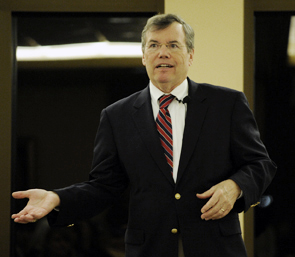 RCC President & CEO, Dr. Robert K. Musil, a national leader in climate change, environmental justice and health is available to book for in-person campus speaking events! Musil has been called “informative, challenging and inspirational all at once.” He is “motivational” with “intellectual depth” and “extraordinary impact.” RCC President & CEO, Dr. Robert K. Musil, a national leader in climate change, environmental justice and health is available to book for in-person campus speaking events! Musil has been called “informative, challenging and inspirational all at once.” He is “motivational” with “intellectual depth” and “extraordinary impact.”
Dr. Musil offers compelling campus lectures and visits involving classes, meetings with campus and community groups, consultations with faculty and administrators, or for Earth Day, Commencement, and other special events. Stays range from one to three days. Reduced fees are in place for 2025-2026 and can be designed to meet reduced budgets. To arrange a campus visit with Dr. Musil, contact the RCC President’s Office at bmusil1@yahoo.com The RCC also offers talks, classes, and workshops on student engagement, activism, sustainability, and the RCC Fellowship program with: Director of Communications, Claudia Steiner; Director of Campus and Civic Engagement, Diego Tovar; and Director of Policy and Strategic Development, Joy Reeves. To arrange, contact Director of Campus and Civic Engagement, Diego Tovar. | | | | | | The May issue of RCC's Campus Dispatch was produced by Ross Feldner | | | |  Sign Up Here to Receive the RCC E-News and Other RCC Newsletters, Information and Alerts. Sign Up Here to Receive the RCC E-News and Other RCC Newsletters, Information and Alerts. | | | | | | | | | | | |